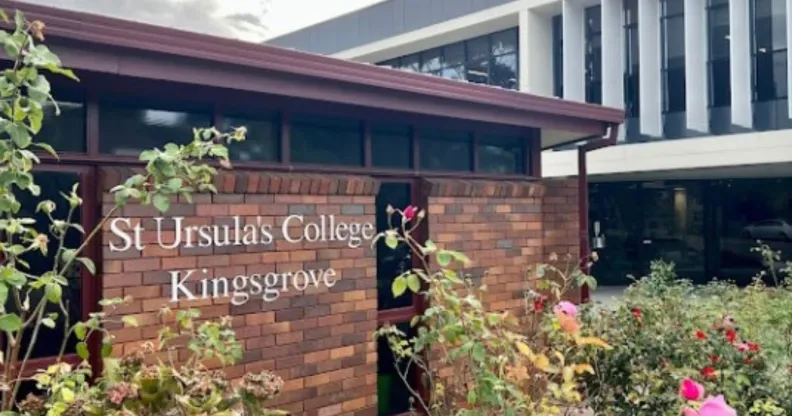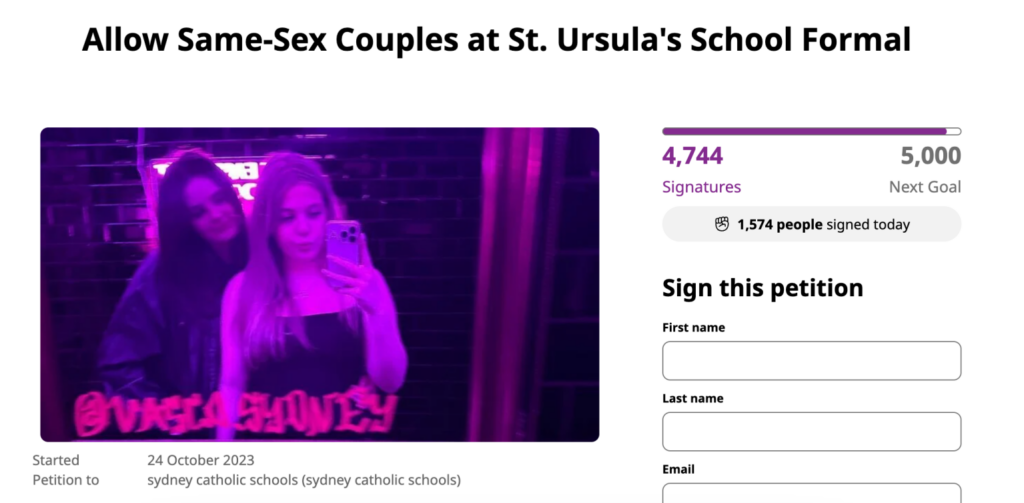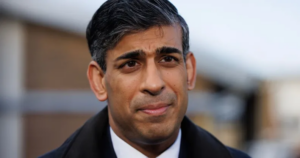
In a recent development that has sparked widespread criticism and ignited discussions on inclusivity and acceptance, St Ursula's College, an all-girls Catholic school in Kingsgrove, Sydney, has come under fire for implementing a rule that prohibits same-sex couples from attending its formal dance together. The controversial decision has raised questions about the rights and inclusivity of LGBTQ+ students in Australia's educational institutions.
The school reportedly informed parents that students are only allowed to bring a date of the opposite sex to the formal dance, prompting New South Wales Premier Chris Minns to call for the rule's reversal. Minns emphasized that in today's age, students should be able to choose their formal dance partners irrespective of their gender or sexual orientation, especially given that these students are close to or over the age of 18.
The situation became more distressing when a concerned mother of a student revealed her shock and disappointment upon learning of the school's decision. At first, she wondered if there were practical reasons, such as limited venue space or other logistical concerns. However, her concerns intensified when the school clarified that her daughter couldn't bring another female student as her date, stating that “the rules are the rules.” This decision has left many students and their families feeling disheartened.
In response to the ban, a student at St Ursula's College launched a petition urging the school to reconsider its stance. The petition has garnered over 4,000 signatures, underscoring the depth of concern among students and their supporters. The student highlighted that she and her girlfriend had eagerly anticipated the school formal for months. They had purchased non-refundable tickets and outfits in preparation for the event, only to discover that they were not allowed to attend together. This not only left them emotionally distraught but also placed them in a challenging financial situation, as they were left with non-refundable expenses for an event they were now barred from.

Furthermore, the petition pointed out that 61.6 percent of Australians voted “yes” in a nationwide survey on same-sex marriage, reflecting a clear public sentiment toward inclusivity and acceptance. This data emphasizes the societal shift toward recognizing and respecting diverse relationships and identities.
In response to the growing controversy, a spokesperson for Sydney Catholic Schools, which oversees 147 educational institutions, explained that their tradition is to celebrate year 12 completion through events that either do not involve students bringing friends or partners or allow students to bring friends or partners of the opposite sex.
While the school's stance appears to be rooted in tradition, it raises important questions about the evolving societal landscape and the need for educational institutions to adapt their policies to reflect changing attitudes toward LGBTQ+ rights and inclusivity.
As the debate continues, it remains to be seen whether St Ursula's College and other educational institutions will reevaluate their policies to ensure that they align with the values of equality, diversity, and inclusivity that are increasingly embraced in contemporary society. The controversy surrounding the ban on same-sex couples attending the formal dance has thrust this issue into the spotlight and may serve as a catalyst for change in Australia's educational landscape.
Author























